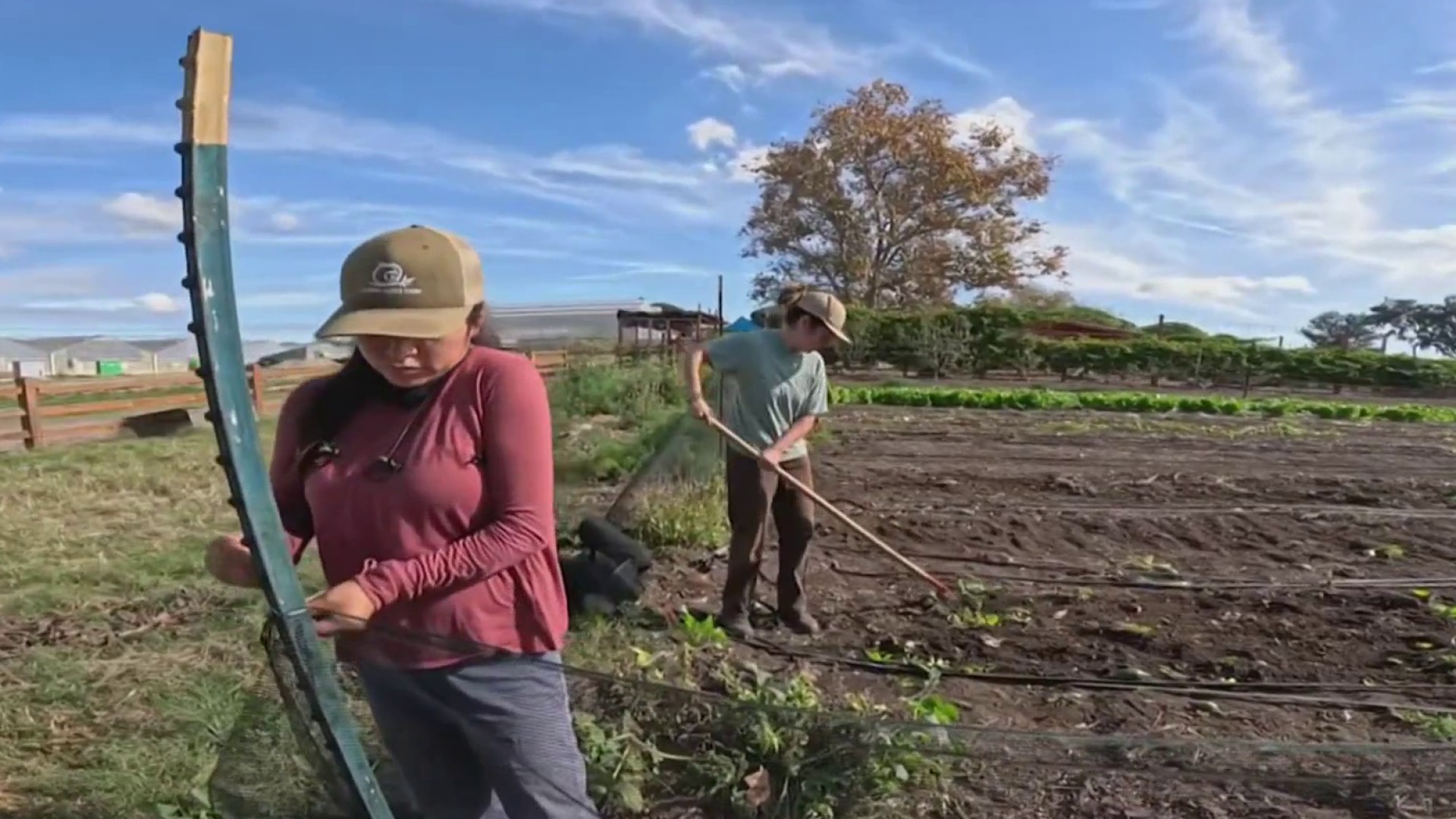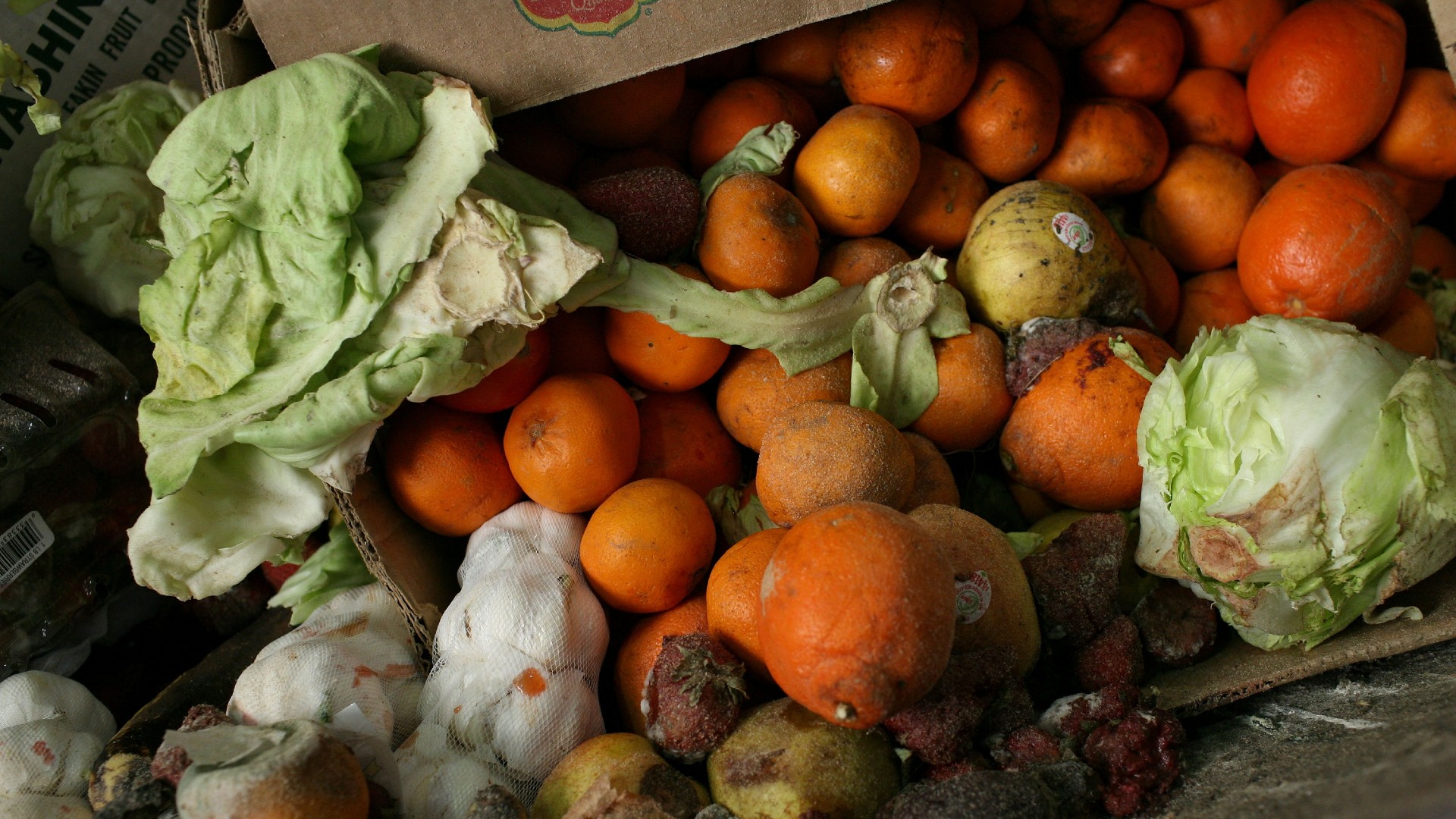Local governments in California are developing climate action plans aligning with the state's goal of cutting greenhouse gas emissions by 85% by 2045.
San Diego County's climate action plan addresses that goal in several areas, including transportation, water, energy and farming. The county's plan is different from the city's and is for the unincorporated areas of the county and county facilities.
"The county climate action plan is a big plan that the county is putting forward," Tyler Farmer, chief of operations for the sustainability planning division for the county, said. "This plan is going to map out a way that we can reduce as many greenhouse gases as we can produce.’’
Net zero is a term used to describe reducing as many emissions as produced. Farmer says the draft version of the plan was put out for public review, which just wrapped at the beginning of the year.
Get San Diego local news, weather forecasts, sports and lifestyle stories to your inbox. Sign up for NBC San Diego newsletters.
Related stories:
"Now we’re looking at the feedback we got on the draft plan, and we’re going to bring that plan once we make some revisions to the Board of Supervisors later this year, and then they’re going to have the opportunity to adopt that plan and put that plan in action," Farmer said.
As Farmer puts it, the actual plan covers 70 different action types. As mentioned above, that means areas like electric vehicles and air quality.
"These are actions that can improve air quality, that can reduce energy bills, utility bills," Farmer said.
The plan also includes farming.
Byron Nkhoma has been working on his Ramona farm Hukama Produce for eight years.
"Now there is more urgent need and scrutiny to doing the best we can to reducing climate change," Nkhoma said.
Nkhoma says climate change has always been a dialogue among other farmers, but now they ask each other how they're working through it.
"Crop production has really changed over time — cycles, growth time, behavior of plants in terms of disease of resistance — it has all changed," Nkhoma said.
When you look around Hukama Produce, you see the healthy produce sprouting up from the ground.
"Leafy greens, kale, collard greens, red kale,'' Nkhoma named off.
What your senses can't pick up is what he's doing to combat climate change. Reducing tillage, using farm animal manure, and hand-weeding his crops are just a few ways he says he's adding nutrients back into the soil.
’’What we’re doing at the moment, we are adding a lot of compost to our soils. That is putting a lot of carbon back into the earth," Nkhoma said.
It's a practice you've heard of, but did you know that it also helps soil retain water? Farmer says it's one way that aligns with the county's climate action plan.
"When you do a practice like adding compost to your farm to give nutrients and support to your plants, that also has the ability to pull the carbon down and store it in the soil," Farmer said.
Farmer says if the plan is approved by the Board Of Supervisors, it will give the county better opportunities to support and incentivize these types of actions within the unincorporated county.
"The practice we have in the draft of our climate action plan to support these farmers is a new action that we have in our climate action efforts," Farmer said.
For Nkhoma, he says the food grown at Hukama Produce goes into the hands of many, including the Hillcrest Farmers Market and Dudley's Famous Bakery And Cafe in Santa Ysabel. Partnerships with Feeding San Diego and San Diego Food Bank provide nutritious meals for underserved communities, and produce boxes are also provided to some schools in northern San Diego County.
"We hope maybe some kid out there might be inspired just the smell of the basil, the cilantro, and think, 'I want to grow this someday,' so these are the changes we can all make and that is great for us," Nkhoma said.
Back at the farm, the changes he's making aren't just helping the planet, but his harvest and future farmers too.
"How about four acres of land being farmed in the right way in terms of putting carbon back into the earth. That can be a small farm but that is a huge impact," Nkhoma said.



